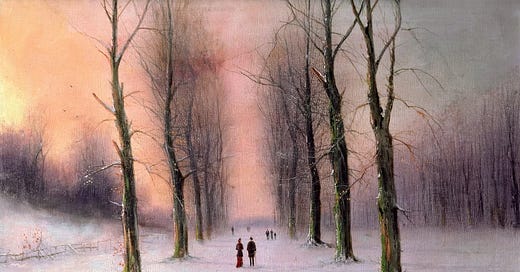How’s Awareness?
A quiet question, a powerful practice, and a lifelong slope you keep climbing.
Do you remember The Power of Now by Eckhart Tolle? For a while, it was everywhere. It felt like one of those global waves — like The Da Vinci Code, or shows like Ozark or Chernobyl — where something catches fire across the world. I initially assumed it was all hype. I avoided it for years, until a good friend lent me his copy and insisted I read it. I didn’t need much convincing — if I don’t have anything to read, I’ll read anything.
But once I started, I couldn’t put it down. It was pointing to something fundamental. Not a self-help trick, but something every person should be woken up to: the simple, radical idea that it’s possible to live in the present. Not theoretically — but actually.
Quick and dirty experiments followed, and to my surprise, they worked. In some gentle but convincing way, it felt like the right way to live. The book became a doorway, and I walked through it. That’s when I first truly understood what “awareness” meant. I started reading more — from Theravāda to Zen. Eventually, the trail led to Vipassana, which I still practice. I may have sneaked in a short sit just before writing this piece.
That friend and I drifted apart over the years — life, as always, took its meandering course — but I know we both kept trying to stay present, each in our own flawed way.
I say flawed because staying present is one of the hardest things to do. Life pulls you out of it constantly, in ways both sneaky and obvious. It’s a slippery slope — if such a slope can be said to even exist. The only way to approach it is to keep climbing back every time you slip, without guilt or shame. Eventually, persistence prevails. Or so I’ve heard.
Once in a while, I still send my old friend a message: “How’s awareness?”
His replies are always brief — he’s not a time-waster like me. Yesterday, he said: “Ups and downs.” I was tempted to launch into a mini treatise on spiritual endurance, but I stopped myself. He was probably at work, and I didn’t want to annoy him with my misplaced enthusiasm. I just replied “same” and left it at that. But that phrase — ups and downs — stayed with me.
Awareness might exist on a spectrum in theory, but in practice, it doesn’t really have ups and downs. It’s not a mood. It doesn’t fluctuate like emotion or energy. When it comes to presence, it’s either on or off. You’re either here — aware — or you’re being run by a script: some version of yourself trying to please or protect some other version of yourself. And usually failing.
Yesterday, for example, I was with people — a rare enough occurrence. I had made up my mind to stay present. But before I knew it, I was off: talking passionately, behaving like a version of myself from ten years ago. Witty, yes. Intelligent, maybe. But not myself. I could see the shift happening, but I couldn’t stop it. I had to lose myself to whatever I was saying. Words were coming out without consent. I was watching myself slip from the center.
That, I suppose, is the “down” my friend referred to. Anything that’s not presence is a kind of autopilot — and not really you. But I don’t beat myself up over it. Being present means going against the grain of all conditioning — not just personal, but cultural, even historical. It’s not meant to be easy. And every time you’re not present, in some way, you’re not living.
One area where my friend and I differ is this: He believes being present is the whole journey — both the path and the destination. If you’re present now, and you stay present for the rest of your life, you’re set. Which is true — in a meta sense. But in the living sense, I believe being present is just the beginning. A beginning that unfolds into something richer and more wonderful than anything you can anticipate.
So if you haven’t read The Power of Now, maybe now’s the time. And if you have, maybe it’s time for a revisit. Try being present, just for a few minutes. With a cup of tea. Or with someone who makes your heart beat a little faster. See how it feels. See how life looks from there.
And the next time we meet, I might ask you: “How’s awareness?” That could be the start of a wonderful friendship.




